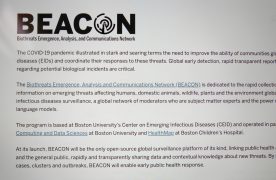Drink after drink after drink. Fall after fall after fall. This is often the decline into alcoholism, an illness that can afflict anyone, of any age or demographic, at any time. From the chronically homeless to an unknowing college student, alcoholism has a tendency to take grip and not release.
Outlined in a Washington Post article, the choking tendrils of alcohol can often suffocate in more ways than one, by straining resources and essentially delaying an inevitable death. The piece, written by Otis Warren, an attending physician at University Emergency Medicine Foundation in Providence, Rhode Island, described a situation that required intervention, yet left him powerless to do so.
In one such instance, Warren’s encounter with a regular, Mr. P, at the facility, seemed to border on the alcoholic and homeless individual taking advantage of the medical care provided.
“At times I felt used by Mr. P. Last year, after we discharged him late one afternoon, he complained that we were not letting him spend the night. (Mr. P did not use our hospital’s formal system for lodging complaints; instead he preferred the expletive-laden diatribe.),” Warren wrote. “I explained to him that he was no longer intoxicated, and I had to discharge him. He promised that he would return later that night, drunker, and I’d be forced to keep him until the morning. He kept his word.”
Despite Mr. P’s combative personality and Warren’s required patience, the fact that this triggered a piece published in the Post needs to be pondered. Alcoholism is vastly unspoken of in this country, viewed more as a dirty little secret to be brushed under the rug than actually examined closely by general society. By this we mean discussing not only alcoholism as an idea but how it could be directly affecting us.
In Providence, just a short jaunt south of Boston, state laws mandate that Mr. P be brought into the hospital because of his lack of a permanent residence and publicly inebriated state. Yet, Mr. P, and so many others, use this time as a temporary bed followed by a later intoxication, as outlined above. There is no further preventative or rehabilitation-focused aid after a return to the streets.
The issue is systemic more than anything else. Nothing is done beyond the initial “sobering up,” and this stems from two primary facts. The first is that addiction is not a quick and easy fix. Unlike a broken bone, an alcoholic cannot be splinted nor stitched. The second is that doctors who work in an emergency triage setting are not expertly trained to address mental illnesses.
To elaborate on the idea behind mental illness still being incredibly stigmatized, there is no better example than students’ relationship with alcohol. On Friday and Saturday evenings, students stumble in and out of dorms, most reasonably intoxicated and others not. How we react to this binge drinking behavior, and perhaps more than just binge drinking, is almost always from a place of fear.
Certainly, university policies call for students to be transported to the hospital for medical attention if he or she cannot swipe into a dorm. Yet, because of the cost of an ambulance or fear of university sanctions, students may not call for the help an intoxicated friend may actually need. Instances on both sides of the aisle have been described, where students have not needed transportation to the hospital but have been forced to do so, while others risked the safety of a friend out of fear. Either way, our relationship with excessive drinking as an illness rather than a crime needs to be more openly discussed.
Preventative measures hindering direct response to alcoholism, especially on college campuses, are a waste of everyone’s time. People both in and out of university are going to drink. At least arm them with the knowledge and confidence to properly respond in a certain situation. Alcoholism is not a crime, it is an illness, and deserves to be treated as such.













